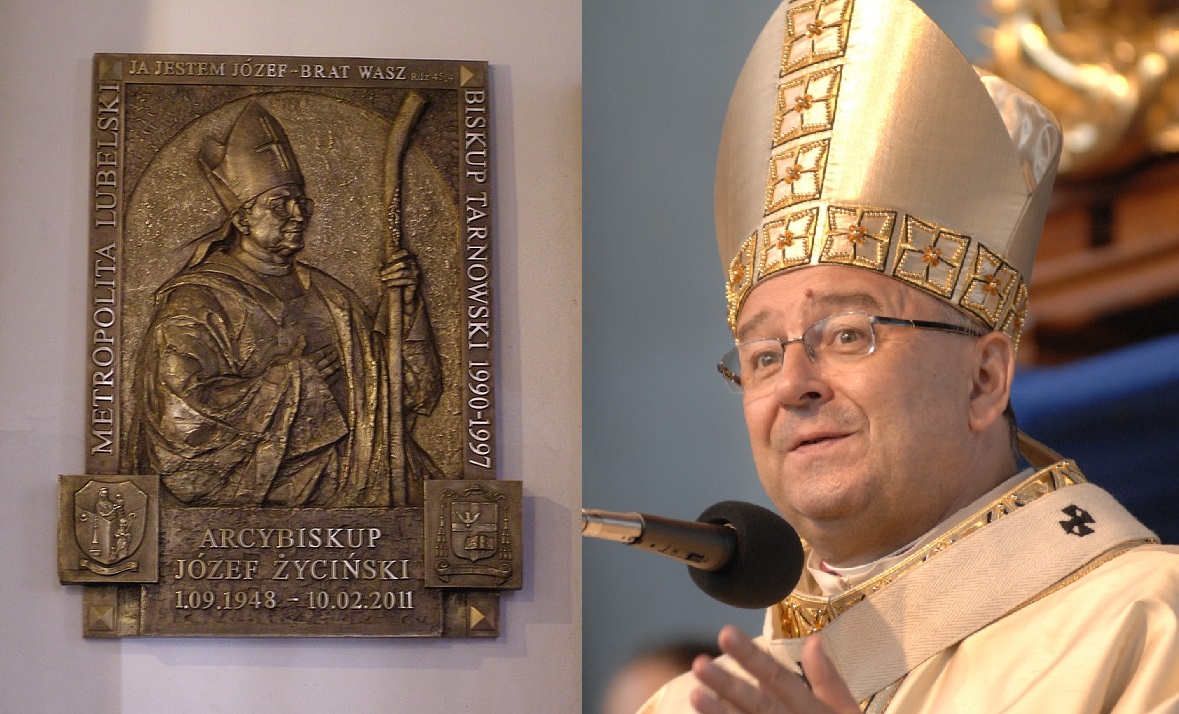Rector of the Catholic University of Lublin: Archbishop Życiński combined dialogue, openness and orthodoxy


Epitaph in honor of Józef Życiński in the Tarnów cathedral, By Andrzej Otrębski - Praca własna, CC BY-SA 3.0, https://commons.wikimedia.org/w/index.php?curid=21360599; Józef Życiński (2010), By Ryszard Hołubowicz - https://commons.wikimedia.org/wiki/File:J-zycinski.jpg, CC BY-SA 3.0, https://commons.wikimedia.org/w/index.php?curid=39432383
Archbishop Józef Życiński was a man of dialogue, also of the difficult one. The foundation of his attitude was Catholic Orthodoxy and respect for the other side. However, in terms of basic values, such as the protection of life, he did not accept compromises – emphasized the Rector of the John Paul II Catholic University of Lublin, Fr. prof. Mirosław Kalinowski.
During the scientific conference “The actuality of the message of Archbishop Józef Życiński”, organized at the Catholic University of Lublin on the occasion of the 10th anniversary of the death of the Metropolitan of Lublin, Fr. prof. Kalinowski recalled his involvement in the work on the encyclical “Fides et ratio” by St. John Paul II.
In the spirit of this encyclical, he emphasized that faith and reason complement each other in the process of knowing and seeking the truth that goes on throughout human life. Any attempt to exclude faith and the resulting world of values from scientific and social life destroys this natural synergy. Archbishop Życiński spoke about it, pointing out that "in the homeland of John Paul II, nihilism cannot become a national philosophy, in which all authorities are cut out in the name of personal complexes and prejudices - said the rector of the Catholic University of Lublin.
He also pointed out that the Archbishop metropolitan of Lublin and Grand Chancellor of the Catholic University of Lublin spoke out strongly about the demands for state financing of in vitro fertilization, assessing that “Catholics who pay contributions to the National Health Fund will indirectly subsidize the killing of embryos, which is contrary to their views. Such a proposal can never be accepted”.
Rev. Prof. Kalinowski emphasized that Archbishop Życiński combined openness to people with different views, the changing world and developing communication technologies with Catholic orthodoxy. “He did not compromise on essential values such as the protection of life from conception to natural death. He strongly emphasized that “the worst kind of fanaticism is fanaticism, which treats the dignity of a human being instrumentally and makes his right to life dependent on the opinion of communities reserving a monopoly on modernity and progress for themselves”- he added.
The Rector of KUL also mentioned that Archbishop Życiński was a man who, as a result of dialogue, was able to withdraw from decisions that turned out to be not entirely appropriate. “I’ve witnessed such situations myself,” he said.
Rev. Prof. Kalinowski also recalled the commitment of Archbishop. Życiński in building Catholic media. “He saw the need to adapt the Church to the dynamic development of new technologies, communication tools and means of social communication. This sphere is also a huge challenge today. As is the ongoing spiritual formation of young people, which for Archbishop Życiński was crucial, ”he noted.



Dodaj komentarz